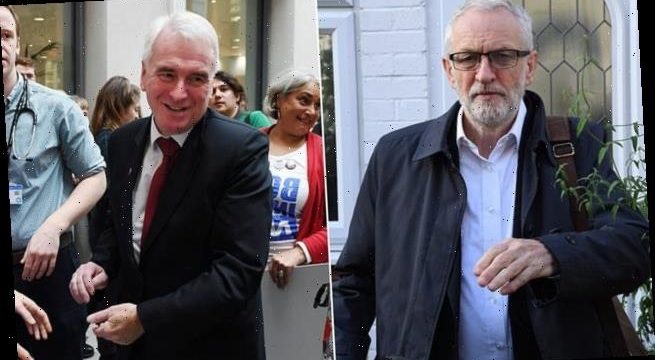Labour’s plans for a four-day working week ‘would cost taxpayers at least £17billion a year in extra wages for the public sector’
- Election battle is ramping up as the parties put the final touches to manifestos
- Labour is promising to introduce a 32-hour working week with no loss of pay
- Think-tanks warn the policy will leave taxpayers with huge bill for extra wages
Labour’s plans for a four-day week would cost taxpayers at least £17billion a year – and the figure could be much higher.
The potentially huge bill for the policy has been highlighted as the party puts the finishing touches to a high-spending manifesto.
Shadow chancellor John McDonnell told Labour conference in September that average full-time hours can be reduced to 32 per week within a decade ‘with no loss of pay’. People should ‘work to live, not live to work’, he insisted.
But the Centre for Policy Studies think-tank has warned that the consequences for the public finances are likely to be significant.
‘At the very least this shift to a 32-hour working week would mean a £17 billion hit to the public sector, even making the most optimistic assumptions,’ a spokesman told The Times.
Shadow chancellor John McDonnell (pictured told Labour conference in September that average full-time hours can be reduced to 32 a week within a decade ‘with no loss of pay’
‘It could at worst mean a possible £45billion hit to the public sector, assuming a fall from 42.5 hours to 32 hours and no increase in productivity.’
Paul Johnson, director of the respected Institute for Fiscal Studies, said the additional costs could ‘easily’ be £15billion a year.
‘It’s impossible to put a precise number on the long-run costs to the public sector of reducing full-time hours to 32 hours a week with no loss of pay,’ he told the newspaper.
‘However, with a public sector pay bill approaching £200 billion a year and with such a policy reducing hours of most full-timers by 10 per cent or more, this could easily add £15 billion.’
Mr McDonnell’s proposal to cut the average working week to just 32 hours went significantly further than a report, commissioned by Labour, which examined the subject.
The shadow chancellor asked crossbench peer Lord Skidelsky to consider how to reduce working hours without reducing pay. He recommended the public sector shift to a 35 hour week within the next decade.
The public sector would then ‘set a norm for the whole economy’ to follow.
The report also called for the government to act as an ’employer of last resort’ in order to guarantee work to anyone who cannot find a job in the private sector.
While suggesting that a 35-hour week could be achievable in some sectors of the economy, the report warned against imposing a four day week across the board, describing such an approach as not ‘realistic or even desirable’.
However, Mr McDonnell then committed to a more radical blueprint than proposed by Lord Skidelsky.
Labour insisted after Mr McDonnell’s speech that the shadow chancellor was not advocating an economy-wide hours cap but rather a gradual reduction in work time in the sectors where it is feasible.
Jeremy Corbyn (pictured in London yesterday) is putting the finishing touches to a high-spending manifesto for the election
Source: Read Full Article


